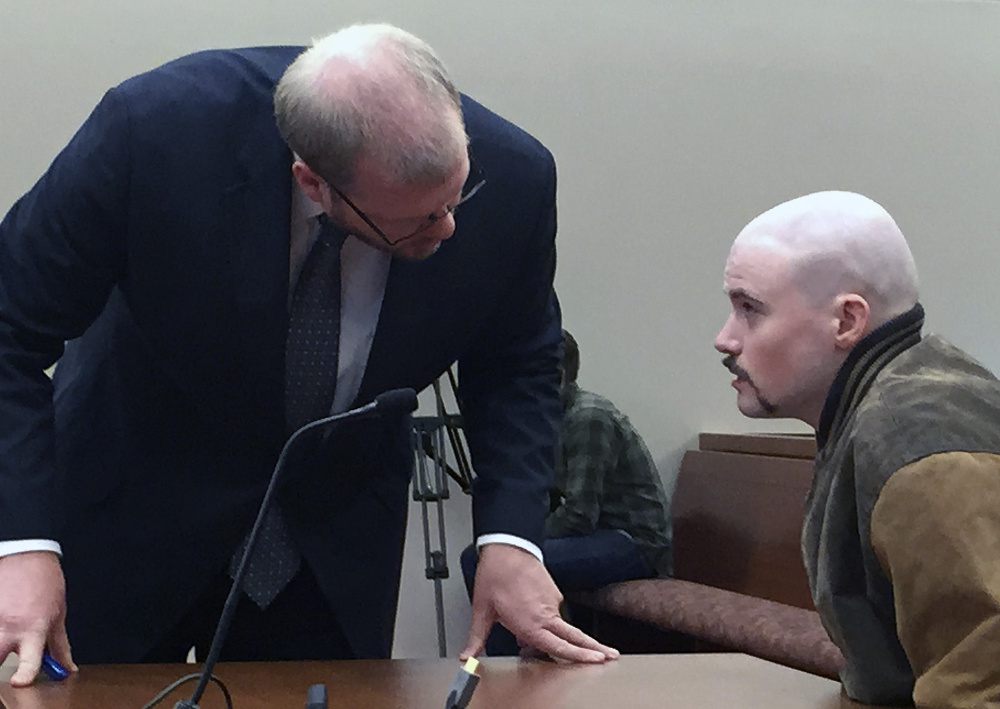Leroy Smith III, accused of killing his father in 2014, has been voluntarily taking medication at Riverview Psychiatric Center in Augusta following a court order designed to restore his competence, attorneys working on the case said Friday.
This year, Justice Donald Marden issued an order requiring Smith to be involuntarily medicated if necessary in a bid to restore his mental competence so he can stand trial on a charge of murdering his father.
Assistant Attorney General Donald Macomber and Smith’s attorneys, Pamela Ames and Scott Hess, said Friday following an in-chambers conference at the Capital Judicial Center that Smith is taking medication voluntarily.
Macomber would not comment on whether the medication had improved Smith’s mental condition. However, he said a hearing in the case is likely to be scheduled for June.
Smith, now 26, was indicted on a charge of intentional or knowing or depraved indifference murder in the May 3, 2014, slaying of Leroy Smith Jr. in their South Gardiner apartment, then dismembering him and dispersing some body parts around a rural Richmond area. He has said that the gruesome crime is somehow related to the heavy metal band Slayer.
Smith has been held at Riverview Psychiatric Center since his arrest, and in January, a judge ordered that Smith be medicated over his and his attorneys’ objections. His attorneys said the idea of forcing medication on Smith was not in his best interest since he then would face trial. It was the first case to come before a judge in Maine following a new state law that went into effect in July that allows a judge to order that a defendant be medicated involuntarily to restore competence.
The state had sought the involuntary medication order, maintaining in one court filing that Smith’s thought processes, which had been described as “floridly delusional,” had improved while he was taking Seroquel, a psychiatric medication, for sleep problems. However, Smith refused to continue taking it.
Smith was arrested in Westbrook two days after the slaying of Leroy Smith Jr., 56. After the younger Smith was taken to Cumberland County Jail, Smith allegedly told officers he had killed his father and “filleted him and buried him in the woods because his dad sexually assaulted him his whole life,” according to an affidavit by Maine State Police Detective Jonah O’Roak.
There was no record of Leroy Herbert Smith Jr. on a sex offender registry in the United States, and the younger Smith had lived in Massachusetts until moving in with his father shortly before the slaying.
At a court hearing in January 2015, Smith addressed the judge directly, saying that a gun was held to his head in 2011 in an incident involving Slayer, and that he exchanged messages with that band. He has also sought unsuccessfully to fire his attorneys and has claimed he is a political prisoner.
Smith’s was the first case to come before a judge in Maine following a state law that went into effect in July 2015 that allows a judge to order that a defendant be medicated involuntarily to restore competence.
Marden’s order said antipsychotic medication “as deemed appropriate by defendant’s treating psychiatric and medical team at Riverview” should be administered orally unless Smith refused it, in which case it could be injected. Marden also ordered that the psychiatric practitioner provide a minimum of weekly progress notes to the court detailing the type of medication, dosage, method of administration and its effect on Smith.
His treatment providers have said Smith was diagnosed with a delusional disorder.
Marden had previously found Smith incompetent to stand trial.
Send questions/comments to the editors.




Comments are no longer available on this story